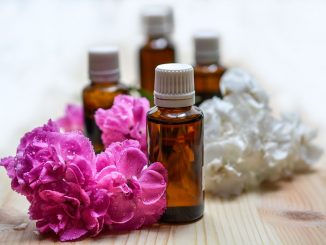
Acne is a skin condition that causes whiteheads, blackheads and pimples. This occurs when the hair follicles are blocked with dead skin cells and oil, and is common in children and adolescents who go through puberty, when hormones cause the body’s glands to produce more sebum.
Numerous studies have suggested that a healthy diet can prevent and treat acne. For example, foods rich in nutrients can relieve the symptoms of acne, so it is necessary to consume complex carbohydrates, zinc, Vitamin A and E, Omega-3 fatty acids and antioxidants. Acne may appear on the face, neck, back and shoulders area and, most of the time, is triggered by hormonal changes in the body. Gradually, this condition will improve or disappear altogether without the need for treatment.
Acne: causing factors
To understand how acne develops, you first need to understand your skin. The surface of the skin is covered by small holes that connect the oily or sebaceous glands under the skin. These holes are called pores. Oily glands produce an oil called sebum, which appears on the surface of the skin through a thin canal called the follicle. Oil removes dead cells by transporting them through the follicles to the surface of the skin. Acne occurs when pores are blocked by dead cells, excess oil, and sometimes bacteria. During the period of puberty, hormones lead to the production of excess oil, which increases the risk of acne.
There are several types of acne among which we can state:
- Whiteheads, which occur when the pores are blocked and get locked in the skin;
- Blackheads, occurring when the pores get blocked but are still open;
- Pustules, which occur when the pore walls are open and allow bacteria, oil and dead cells to penetrate under the skin. Most times they look like red swellings.
How your diet affects your skin
The diet is one of the main factors that impact the appearance of the skin. Certain foods increase blood sugar faster than others, so the body secretes a hormone called insulin. Excess insulin causes the glands to produce more oil and thus increases the risk of acne. Foods that are an insulin trigger include pasta, white rice, white bread, and sugar.
Tips for maintaining a healthy skin
Vitamins A and E. A study concluded that low levels of vitamin A and E are related to cases of severe acne. People who suffer from severe acne should consume more foods containing these two vitamins. Prior to taking supplements, the doctor’s consent is required.
Antioxidants and Omega-3 fatty acids. Omega-3 is a type of fat that is found in certain protein sources like fish meat and eggs. Antioxidants are chemicals that neutralize toxins in the body and, together with Omega-3, help to reduce inflammation.
A balanced, low-sugar diet is ideal for reducing inflammation and regulating hormone levels.
Drink more water. The best thing you can do for your body is to constantly hydrate yourself. Water is extremely important for a healthy and clean skin, and therefore, it is recommended to consume at least 2 liters of water per day.



Leave a Reply